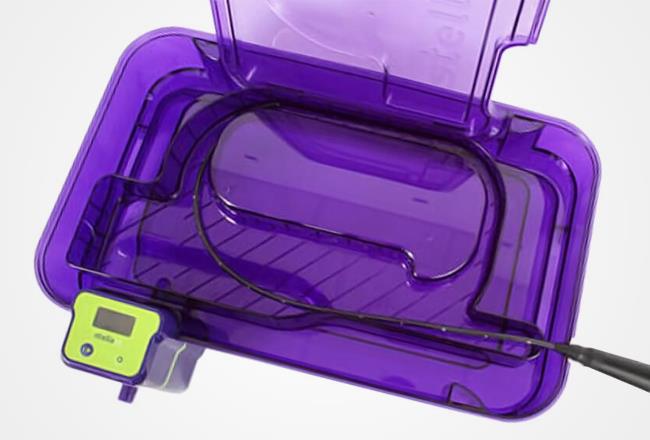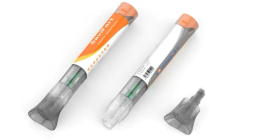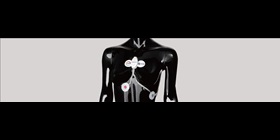
Case study
Apec® polycarbonate for high-heat medical devices
Shortening patient wait-times by speeding up the process needed to disinfect instruments after each treatment can improve efficiency in clinical and hospital environments. Tristel Solutions set out to achieve exactly this with its new Stella System, enabled by Apec® 1745 high-heat polycarbonate.
To shorten the time needed to disinfect endoscopic and ultrasound instruments, Tristel Solutions wanted a heat-resistant, polycarbonate-housed washer that combines the simplicity of manual soaking with the sophistication of an automated washer-disinfector. This would boost patient treatment efficiency by up to 87 percent.
Tristel Solutions asked for a biocompatible, heat-resistant, medical-grade polycarbonate for their new Stella System that could withstand autoclave temperatures as high as 134°C. This would enable medical personnel to significantly reduce the time required for the disinfection process.
Apec® 1745 high-heat polycarbonate’s ability to provide ultra-high-heat resistance with impact strength made it ideal for the Stella System. The material also offers glass-like transparency, which lets users monitor the entire disinfection process. In addition, Apec® 1745 is production friendly, which made it possible to mold the device’s large contamination tray in one piece and significantly reduce total assembly time, as well as eliminate the risk of liquid leakage during product use.
Why Apec® 1745 was the right solution for Stella System
- Biocompatible: Meets the necessary ISO 10993-1 test requirements.
- Heat resistant: Suitable for superheated steam sterilization up to 143 °C.
- Ultra-tough: Material is exceptionally durable and impact resistant.
- Dimensionally stable: Retains its original shape when exposed to heat or humidity.














